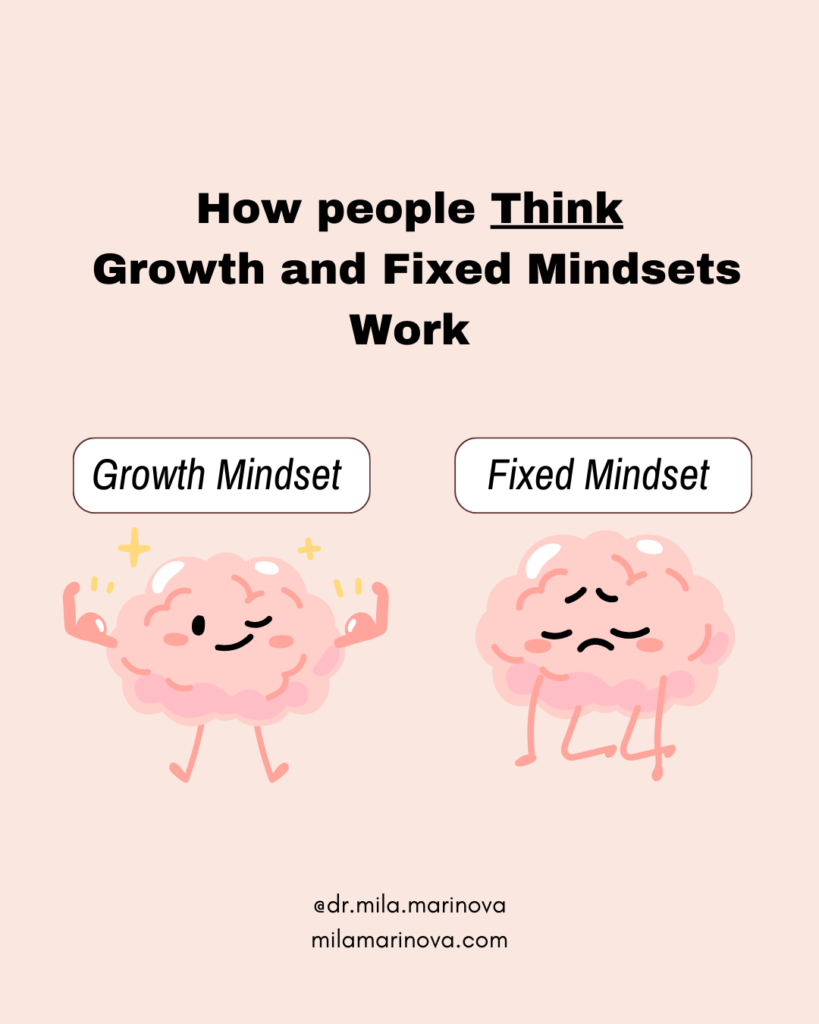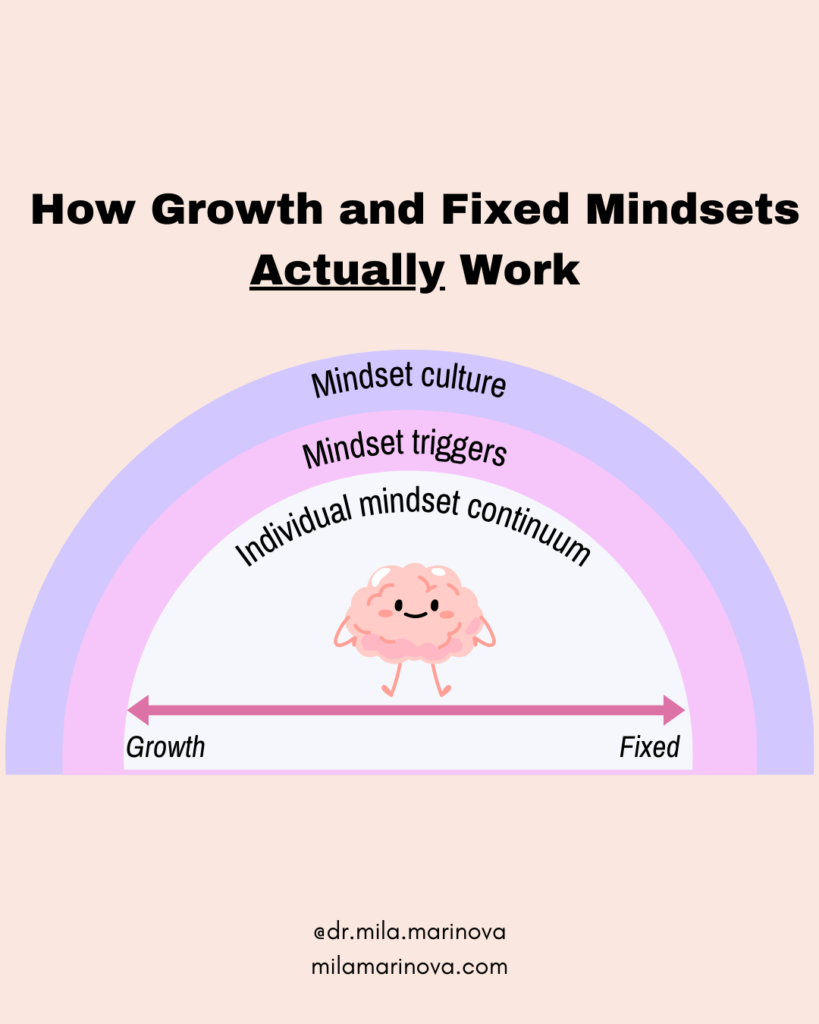
Since Stanford psychology professor Carol Dweck introduced the “growth mindset” concept, we’ve seen it widely circulated in social media, HR trainings, and beyond. Dweck’s research distinguishes between two general types of mindsets: a fixed mindset (where people believe their abilities are static and unchangeable) and a growth mindset (where abilities are seen as flexible and capable of development). However, a common misconception in pop psychology is that people strictly have a fixed or a growth mindset, with the fixed mindset viewed as “bad” and the growth mindset as “good.”
In reality, mindsets operate on a continuum, and the mindset we adopt in any given situation depends on various factors such as context, environment, and professional culture. A person can display both fixed and growth mindsets depending on the circumstances.
When it comes to personal or professional development, how a person responds to challenges is shaped by a complex interplay of their beliefs, past experiences, and the culture of their environment—whether at home, work, school, or the gym. At least four key factors can push individuals toward a fixed or growth mindset in different situations. Here are the conditions and what you can do if you find yourself in any of them:

1) Evaluative Situations
What is it? Situations where we expect to be evaluated by others can push us into “proof” or “performance” mode. In such moments, we might focus more on how we’ll be perceived, leading us toward a fixed mindset. On the other hand, we can shift into a learning mode and adopt a growth mindset, where we see the evaluation as an opportunity for development.
What to do? Recognize the physical tension and defensiveness you feel when being evaluated. Instead of fixating on how you’re perceived, ask yourself: “What can I learn from this?” or “How can I grow in this situation?” Visualize how a shift in mindset would look, feel, and sound. By consciously focusing on learning, you can ease performance pressure.
2) High-Effort Situations
What is it? High-effort situations require extra effort, energy, and attention, like learning a new language or mastering a new tool. In these moments, we might lean toward a fixed mindset, fearing failure, or we can push through the challenge with a growth mindset, accepting that effort is a necessary part of growth.
What to do? Start with smaller, manageable tasks to build confidence and motivation. High-effort situations tend to challenge our core beliefs about who we are and what we are good at. Engage in self-affirmation to remind yourself that your identity is multifaceted—you’re not defined solely by this one challenge. For example, “I am not only a scientist. I am also a wife, a sister, a daughter, a teacher, a mentor, a dancer, an entrepreneur, etc.”Self-affirmations broaden our sense of self, and we tend to be less affected by fears.
Welcome the effort by remembering that there is a relationship between effort and ability. Being successful at something requires hard work.
Sometimes, we know how to tackle a high-effort situation, but we lack the resources, so don’t forget to ask for help and rely on your support community.

3) Critical Feedback
What is it? Receiving negative feedback is never easy, but how we react makes all the difference. When we adopt a fixed mindset, we tend to take feedback personally, interpreting it as a reflection of our worth (e.g., “I didn’t just fail at the task, I’m a failure”). Conversely, with a growth mindset, we see feedback as a tool for improvement and actively seek it out, understanding that it helps us grow.
What to do? One way to foster a growth mindset when receiving feedback is to normalize it by seeking or giving feedback regularly. Look for concrete, actionable feedback, as it’s the most useful. Listening to others’ stories about overcoming their fear of feedback can also help.
Additionally, opt for informal feedback conversations—they often feel less intimidating than formal feedback sessions and avoid ineffective feedback strategies, like the “feedback sandwich.”
4) Success of Others
What is it? When others succeed, it’s easy to slip into a fixed mindset and feel demotivated (e.g., “I’ll never be as good as her”). However, with a growth mindset, others’ success can inspire us (e.g., “If she can do it, I can too!”). How we perceive others’ success can hinder or fuel our development.
What to do? To view others’ success through a growth mindset lens, start with self-affirmation: remind yourself of your own strengths and achievements.
Be mindful of the action-observer bias—we often only see the results of others’ success, not the effort and struggles behind it. Acknowledge that their success likely involved hard work, even if it’s not immediately visible.
Shift your focus from competing with others to improving yourself. Success is about personal growth, not competition.
.
.
